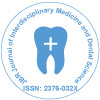Our Group organises 3000+ Global Conferenceseries Events every year across USA, Europe & Asia with support from 1000 more scientific Societies and Publishes 700+ Open Access Journals which contains over 50000 eminent personalities, reputed scientists as editorial board members.
Open Access Journals gaining more Readers and Citations
700 Journals and 15,000,000 Readers Each Journal is getting 25,000+ Readers
Indexed In
- Index Copernicus
- Google Scholar
- Open J Gate
- China National Knowledge Infrastructure (CNKI)
- RefSeek
- Hamdard University
- EBSCO A-Z
- OCLC- WorldCat
- Geneva Foundation for Medical Education and Research
Useful Links
Recommended Journals
Related Subjects
Share This Page
Comparative study of hardness for hard chairside relining and denture base materials on repeated disinfection procedures: An in vitro study
International Conference on Restorative Dentistry and Prosthodontics
Taksh N Shah
University of North Texas Health Science Center, USA
Posters & Accepted Abstracts: J Interdiscipl Med Dent Sci
Abstract
Aim: There is hypothesis that disinfection procedures may decrease the hardness of reline and acrylic denture base resins. The aim of this in vitro study was therefore to investigate the effect of chemical and microwave disinfection procedures on hardness values of commonly used hard chairside reline (Ufi Gel hard, Kooliner) and denture base acrylic resins (Lucitone 199). Materials & Method: Powder (polymer) and liquid (monomer) were mixed according to manufacturersâ�� instructions to prepare 20 specimens from each material. Specimens were divided into 2 control and 2 test groups. Hardness measurements (VHNVickerâ��s hardness number) were made after polymerization and water immersion (control groups), and after chemical and microwave disinfection (test groups). Measurements of hardness were analyzed using one-way analyses of variance (ANOVA) and Tukeyâ��s honestly significant difference (HSD) test (�±=.05). Results: Chemical disinfection method significantly increased (p=.001) hardness values of Lucitone 199 (from 19.00 VHN to 21.02 VHN) and Kooliner (from 13.02 VHN to 14.02 VHN); whereas increased hardness values for Ufi Gel hard (from 17.00 VHN to 17.16 VHN) were statistically insignificant (p=.642). Microwave disinfection method also significantly increased (p=.001) the hardness values of Lucitone 199 (from 19.00 VHN to 26.00 VHN), Ufi Gel hard (17.00 VHN to 21.00 VHN) and kooliner (13.02 VHN to 14.08 VHN). Conclusions: Both chemical and microwave disinfection methods increase the hardness of reline and acrylic denture base resins, contradicting previously published studies. Microwave disinfection method is more appropriate compared to chemical disinfection method.Biography
Taksh N Shah is a graduate student who is working towards becoming an Epidemiologist from University of North Texas Health Science Center (UNTHSC). He is a Certified Professional in Dental Surgery from Gujarat University, India. He is currently working as the Student Assistant in the Molecular and Genetics Laboratory at UNTHSC. He reflects a diverse cultural and organizational background and has been a part of inter-professional activities and patient safety summit. He has gained 4 years of experience in research, which includes his publications and posters in India as well as USA. His major research areas include pediatric dental care and exposure of VOC compounds in infants and pregnant women. With Public Health Dentistry as his future goal, he is aiming to get into dental school next year.
Email: shahtaksh99@gmail.com

 Spanish
Spanish  Chinese
Chinese  Russian
Russian  German
German  French
French  Japanese
Japanese  Portuguese
Portuguese  Hindi
Hindi